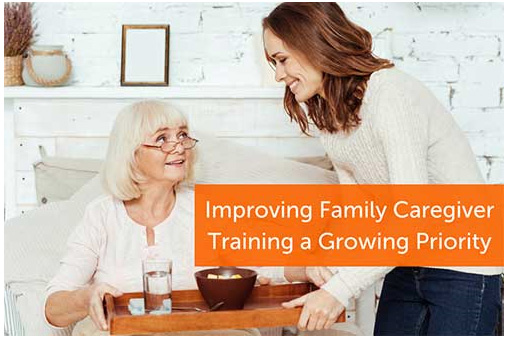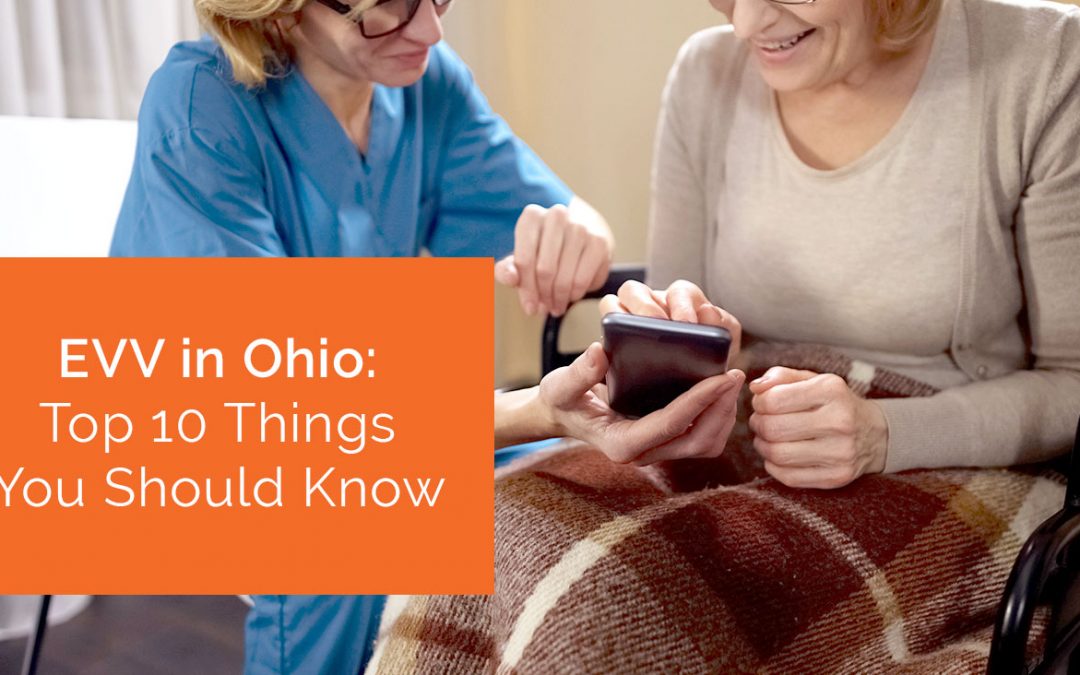Imagine that one of your loved ones is hospitalized for a stroke. After several days in the hospital, he’s discharged home, despite having weakness in his extremities and difficulty communicating. You’re given instructions on how and when to administer medication, signs that indicate a possible problem, and a list of exercises to complete. It all sounds manageable — until you get home and realize that you can’t help your father with his exercises without hurting him — or you. It’s only after he nearly chokes while drinking water when you leave the room for a moment that you finally break down and admit you have no idea what you are doing.
With more than 40 million family caregivers in the U.S. alone, such a scenario isn’t all that uncommon. In fact, the majority of family caregivers have no medical training or experience of their own, and are relying solely on the instructions provided by their loved one’s health care providers, their own research, and the training they receive from home health nurses to provide care. In some cases, this is all they need. In others, their lack of training is putting the health of their loved one, not to mention their own health (physical and mental) into jeopardy. In fact, in 2015 alone, family caregivers spent more than $10.25 million on medical care for themselves due to the stress and depression related to caring for a loved one.
The lack of training for family caregivers is a serious issue, and one that is gaining attention in Washington and elsewhere. There is a major nationwide push to improve the resources and training provided to family caregivers, in an effort to not only improve the care and outcomes for patients, but to provide better support and reduce illness among caregivers themselves.
Current Rules and Regulations
Until recently, much of the legislation related to caregiving was introduced on a state level. Only 33 states have laws on the books requiring medical facilities to provide training and instructions to caregivers upon discharge, but it’s up to individual hospitals to determine how that education is provided. In other words, in some cases, caregivers are given little more than a quick demonstration on wound care or patient transfer, or just written instructions related to medications.
Recognizing that these rules were inadequate, some lawmakers have introduced versions of the Caregiver Advise, Record, Enable Act. Currently, 30 states have adopted versions of the law, which require hospitals to provide three key supports when a patient transitions from the hospital to home:
- A patient can identify a family caregiver on his or her medical record upon admission to the hospital.
- The caregiver is notified when the patient is discharged from the hospital or transferred to another facility.
- The caregiver must be offered instructions on the medical tasks that they will be required to complete at home.
While the CARE legislation does help improve the communication between health care providers and caregivers, and increases the likelihood that individuals will receive training, there are still gaps. For example, when a Philadelphia woman was caring for her mother, who had dementia and was immobile, the older woman developed bedsores from the pressure of lying in one spot for most of the time. The caregiver and other family members were unable to treat the wound appropriately, leading to a doctor visit — and a prescription for skilled nursing care at home and more training in preventing and treating bedsores.
With so many families experiencing similar challenges, Senator Susan Collins (R-ME) introduced legislation last year that would expand the availability of training and support services for family caregivers of those with Alzheimer’s and dementia. The Alzheimer’s Caregiver Support Act through an expansion of grants under the Public Health Services Act is designed to improve the well-being of patients, while also reducing the burden and stress on family caregivers.
How Home Health Can Help
Helping caregivers learn how to better care for their loved one’s can actually be an integral part of the services that your agency offers. When your nurses and aides visit with the patient, they can provide necessary training and education that will improve the level of care that the patient receives. Demonstrating proper techniques for wound care, for example, can reduce the likelihood of infection, while also giving the caregiver confidence in his or her own abilities. Providing the proper training can prevent adverse consequences for the patient, and improve outcomes overall, as well as patient satisfaction with your care.
Of course, as with any initiative, cost is a concern, but it’s also important to look at the overall costs of medical care and the potential savings that can be realized by incorporating caregiver training into home health services. Proper training could reduce readmissions, as well as the likelihood of additional conditions, keeping costs down across the board.
As our population ages and more seniors decide to age in place, the need for improved training for family caregivers will only increase. In the meantime, prepare your agency to provide better services by checking out Complia Health’s solutions for agency management, which can help you structure your business to provide this necessary service.




